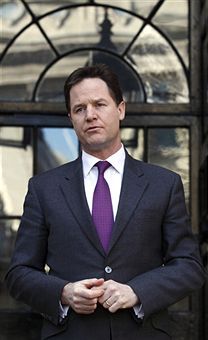Did you see that amazing article by a group of pro-EU businesspeople? What about that clever ad paid for by ‘Better To Be In’, the new pro-EU lobby group? Nope, me neither.
The reason we haven’t seen anything like that is because the pro-European camp in Britain is in total disarray. Like a beaten army, it is withdrawing in a state of confusion, while some diehards stage energetic but un-strategic counterattacks against the advancing Eurosceptic forces.
A letter from pro-EU businessmen was, frankly, unimpressive: the signatories were hardly a who’s who of Britain’s business community, and even included some former officials. Hardly a show of strength. But yesterday’s letter from 100 Tory MPs, calling on David Cameron to ‘opt-out’ of a range of EU laws, was eye-catching.
The reason for the disarray is that even Britain’s pro-EU institutions have become increasingly Eurosceptic. Take the CBI, which could be counted on to be pro-EU in the past: that has more and more sceptical members now. Even the Lib Dem rank-and-file is changing, as is Labour. And the pro-EU Lib Dem leadership seem petrified that any pro-EU campaign will be discredited by association with the party.
‘What of the BBC?’ ask the Eurosceptics. Isn’t the Beeb consistently pro-EU, and thus makes up for any gaps elsewhere? That’s a point of view. But, even if you accept the contention, it’s hardly the same as a concerted campaign that produces new research, organises publicity stunts, etc.
The result is one of the most one-sided debates in memory. The most pro-European campaigner is, in effect, the Prime Minister. I jest — but only partially. David Cameron may describe himself as a Eurosceptic, but he seems to believe that the EU has been a fundamentally good thing, and that Britain should remain in the Union. He would like a different relationship with the EU — indeed, a reformed EU — but in this he’s hardly different from many other European leaders.
On the principle that healthy debate creates better policy, I wish the likes of Nick Clegg would organise themselves better and argue their case as forcefully as the Eurosceptics argue theirs. Given the relatively high chance that the UK will exit the EU in the not too distant future, the country needs to be made aware of some of the problems a post-EU Britain would face. People may judge the costs an acceptable price to pay, but they should at least know what those costs are. So, General Clegg, organise your army, fight a rearguard.






Comments